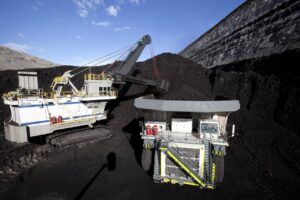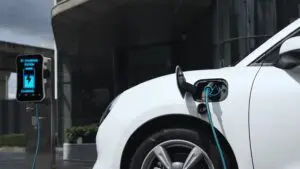The Tasmanian government has assured that the state’s energy security is “stronger than ever” after effectively binning its commercial contract with the company that operates the Basslink undersea cable that links Tasmania’s grid to the Australian mainland.
Tasmania energy minister Guy Barnett said on Thursday that the government and state-owned utility Hydro Tasmania had taken “another step” towards protecting their legal rights, by terminating the Basslink Services Agreement (BSA).
The move is the latest in a years-long dispute between the two parties, that started when the Tasmanian state government sued Basslink for damages over the long interconnector outage that hit the island in 2015.
Barnett said that the termination of the commercial contract would not affect the state’s energy security, which remained on “firm footing” thanks to strong hydro storage levels and the Cattle Hill and Granville Harbour wind farms.
The undersea cable, meanwhile, would remain in service while negotiations continued with Basslink’s administrators “on alternative commercial arrangements, suitable for the receivership period,” Barnett said.
In a separate statement, Hydro Tasmania said it had made “a good faith offer” for an interim arrangement, under which key elements of the BSA would be put back in place for one more month while the parties discussed possible alternative arrangements.
As RenewEconomy has reported, the months-long failure of Basslink back in 2015-2016 was part of a series of unfortunate events spurred by Tasmania’s driest Spring on record, which depleted the state’s hydro electricity generation capacity – the state’s usual source of reliable renewable power.
Tasmania responded by starting to import more electricity from Victoria, until the link to the mainland failed, taking it out of action for months and forcing the island state to lurch back to the expensive fossil fuel era.
In December 2020, the arbitrator High Court Chief Justice Robert French found that the 2015 cable failure was not a force majeure event, as Basslink had claimed, but rather was caused by thermal overstressing arising from BPL’s operation of the interconnector.
In light of this finding, Justice French awarded the state and Hydro Tasmania in excess of $70 million, including costs related to the cable failure, and ordered Basslink to take actions to improve the operational performance and reliability of the cable.
The parties then came to a Standstill Agreement, allowing negotiations to take place to satisfy BPL’s obligations under the arbitration outcomes and allowing for BPL to try to refinance its debt.
But in late 2021, Barnett’s department wrote to Keppel Infrastructure Trust to advise that the state and Hydro Tasmania would not be extending the agreement, forcing Basslink into voluntary administration a month later.
In its statement on Thursday, Hydro Tasmania said it remained willing to discuss a way to provide funding to Basslink during the receivership and help transition the asset to an alternative commercial model.
At the time of publication, Basslink had not yet replied to a request for comment, but in October of 2021 – when the Standstill Agreement was scrapped – it described Tasmania’s handling of the dispute as “deeply regrettable.”
At that time, Basslink said that it had “acted purposefully and with care to ensure that all stakeholders’ interests, including the state, Hydro Tasmania, lenders’ as well as KIT’s institutional and retail Unitholders” had been taken into account.
Basslink also claimed in October 2021 that an attempt at a “prior sale process did not conclude because all parties, including the state and Hydro Tasmania, unfortunately, could not come to a satisfactory agreement with the bidder.”
More details to come.
Get RenewEconomy in your inbox, every day. To sign up to our free daily newsletter, just click here.








